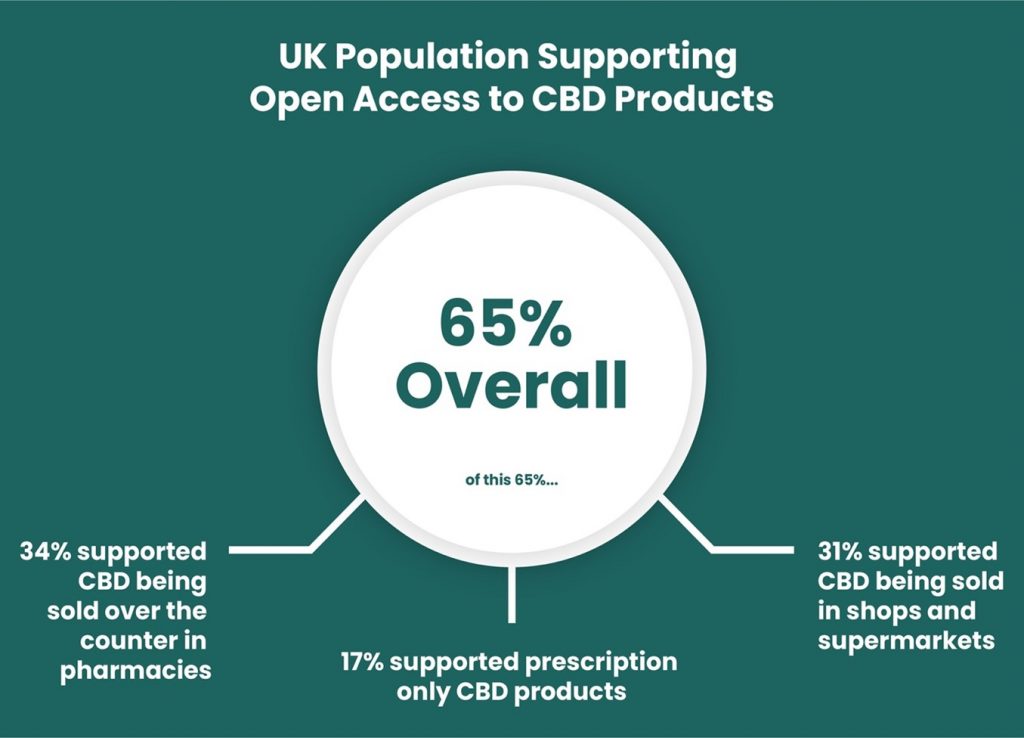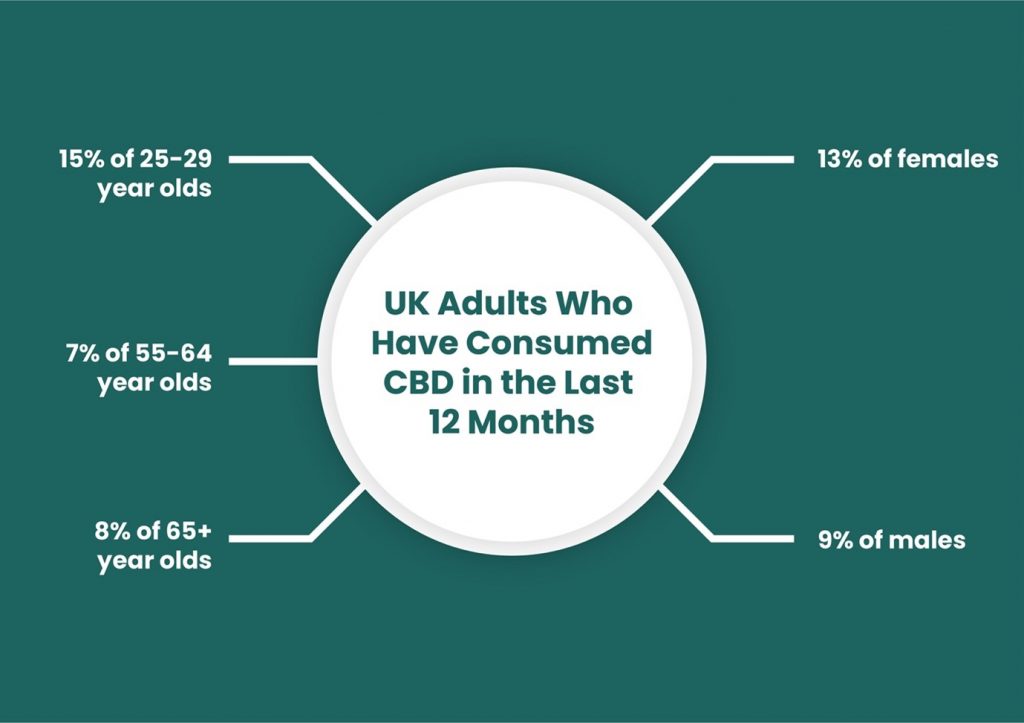For those who have been living under a rock, CBD is the cannabis-derived chemical compound that has taken the UK wellbeing industry by storm.
But this doesn’t mean CBD users have been getting stoned, CBD is a non-psychoactive compound and there has been a huge amount of research into the benefits it provides.
To learn a little more about what CBD is, this video will fill you in on the basics:
It is currently being used to treat and manage a multitude of conditions, such as:
- Chronic pain
- PTSD
- Epilepsy
- Anxiety and depression
- Arthritis
- Alzheimer’s
- Parkinson’s
- Multiple sclerosis
- Diabetic complications
- Cancer
But it is also being used in various health and wellbeing products, as well as cosmetic and food product categories- you can even attend CBD yoga classes and buy CBD infused pillowcases!
In 2019 the UK CBD market was worth £300m, which was six times greater than its expected growth, with 1.3 million users nationwide. And the CMC (Centre for Medical Cannabis) has estimated that the UK CBD industry could be worth £1bn by 2025, comparatively, this is equivalent to the current entire UK herbal supplement market.
So it’s safe to say that the UK CBD industry is soaring and its demand is showing no sign of stopping. According to independent surveys by YouGov and Dynata in 2019, between 8 and 11% of the adult population in the UK (that’s approximately four to six million people) have consumed or used a CBD product in the last year.


However, despite the current growth predictions, there is more than a little confusion surrounding current UK CBD laws. The majority of cannabinoids are listed as controlled substances under the Misuse of Drugs Act.
Although CBD is completely legal in the UK (provided it contains less than 0.2% of the psychoactive compound THC), the sale of CBD flowers and buds is prohibited, and it is illegal to grow hemp without a license.
This means that the UK industry is almost entirely dependent on sourcing the raw ingredient for CBD- hemp- from Europe.
And, of course, this has rocked the boat for many UK CBD retailers, as Brexit brings the free movement of goods between the UK and the EU to an end. As the UK is no longer obligated to abide by EU regulations, shipping delays, more paperwork and extra costs can now be an expected part of CBD processing.
Therefore, the UK CBD market will undoubtedly suffer as a result of Brexit, not only costing many their livelihoods but also making it more difficult for those who rely on it for treatment.
This paired with the effects of Covid-19 incurring further implications and causing delays in the international import and export of goods does not bode well for the UK CBD market.
That is unless the UK government take a leaf out of Switzerland’s book, who’s CBD industry is prospering. In 2011, an amendment to the Swiss Narcotics Act made it legal to grow and sell cannabis with an average THC content of <1%. This caused the industry to thrive, with a boom in low-THC retailers and CBD products.
As mentioned, the UK currently have much stricter laws and regulations on the agriculture and dispensing of hemp so it remains to be seen whether the UK will be able to boast such a boom.
If the UK were to follow in Swiss footsteps and amend the current laws surrounding the domestic cultivation of hemp, it could do wonders for British farmers. From the studies above, three quarters of those surveyed agreed that UK farmers should be legally endorsed to grow hemp for CBD products.
With CBD in such high demand and the growth predictions rocketing, it seems like a sure way to fatten up the UK economy. And after the pandemic, this is sorely needed.
Also, grown domestically, CBD products would be easier to regulate and process without importing internationally- which could make it a more eco-friendly process.
If you want to know how you can get involved in reclassifying hemp as a crop to allow a free market on hemp production, you sign this petition: https://petition.parliament.uk/petitions/565107
Photo by CRYSTALWEED cannabis on Unsplash.



